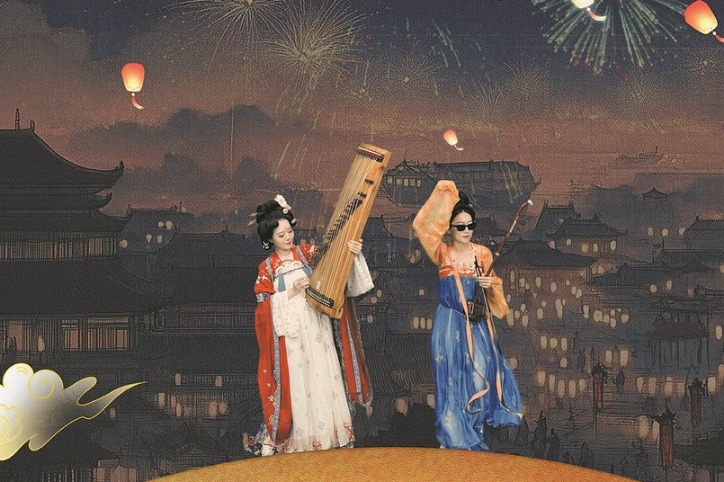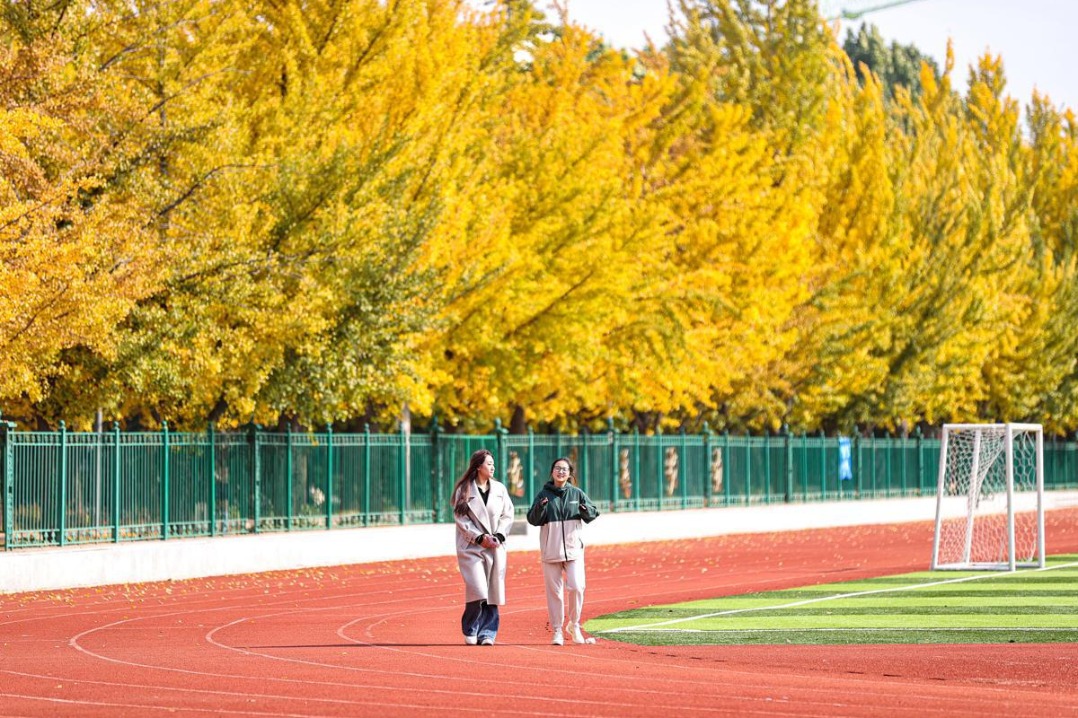Russian bride finds lifetime love in China
Couple tie knot on National Day in traditional ceremony


During the weeklong National Day holiday, a short video of a Russian bride serving tea to her parents-in-law at a traditional wedding in Jinzhong city, Shanxi province, quickly went viral online, attracting widespread attention from both domestic and overseas netizens.
Dressed in traditional Chinese bridal attire, Olga Solomakha appeared quite shy and hesitated to ask for the red envelope customarily given during the tea-serving ceremony.
In Chinese traditional weddings, the tea-serving ceremony, where the newlyweds offer tea to their parents, is a significant ritual. "We are just starting our life together and need your help," Solomakha said after serving a cup of tea to her father-in-law.
"It is really amazing to experience a traditional Chinese wedding," she told China Daily. "I learned that in Chinese weddings, the phrase 'yi si yi si' signifies giving a red envelope.
"I really love Chinese culture and cuisine. I also like my Chinese wedding dress that is red, symbolizing prosperity."
Solomakha, born in Nizhny Novgorod, Russia, and her groom Wang Yuepeng chose Wang's hometown of Jinzhong to hold their wedding ceremony on Oct 1.
Wu Jin — Wang's mother — suggested they have the wedding on the first day of the National Day holiday as it held more significance to the Chinese people.
"We also wanted to celebrate with our small family together and express our love for our country," Wu said.
In July 2019, while studying in Russia, Wang met Solomakha through a Russian social media platform. They quickly bonded over chats, strolls and cultural exchanges between China and Russia.
Despite the language barrier, they bridged the gap via translation applications and body language. They fell in love after a few months together.
"His cooking skills impressed my family members with Chinese dishes, winning their favor," Solomakha said. "As time passed, we also discovered shared interests and dreams, supporting each other along the way."
In the beginning of 2020, Wang returned to China to spend Spring Festival with his family in Shanxi.
However, the sudden outbreak of the COVID-19 pandemic separated them for over two years, during which they could only rely on online video chats to stay connected.
"Russia is five hours behind China, so I stayed up late at that time," Wang said. "I've gotten used to it now."
In September 2021, Wang became a teacher at Nantong University in Jiangsu province, and in September this year he held a solo clarinet concert at Jiangsu Grand Theater in Nanjing, Jiangsu.
In May 2022, Solomakha took the HSK Chinese proficiency exam in Moscow after significantly improving her Mandarin.
She longed for China and aimed to study here.
In September 2022, she finally arrived in Nantong, and began to study international economics and trade at university.
"Thanks to the power of love that made us get together again," she said.
When they decided to marry, they faced challenges from their families, cultures and lifestyles. "I never thought I would have a foreign daughter-in-law, but knowing they truly love each other, I am supportive," Wu said. "Olga is very clever, and we even studied the dance cultures of both countries together."
In July this year, they registered their marriage at the Civil Affairs Bureau in Yuci district of Jinzhong. At the ceremony, Solomakha couldn't stop shedding tears upon hearing Wang's vows: "Three years of pandemic and thousands of miles apart did not stop our love. I will spend my lifetime protecting you."
During the National Day holiday spent in Shanxi, they visited tourist sites such as Jinci Temple in Taiyuan and Pingyao Ancient City.
"I really love Shanxi's cuisine, such as noodles, aged vinegar and steamed buns," Solomakha said. "Through our cross-border marriage, I hope to strengthen the friendship and closeness between the people of China and Russia."
Contact the writers at zhouhuiying@chinadaily.com.cn
- Russian bride finds lifetime love in China
- Journalism studies rally to stay on front line of relevance
- Robotic dogs take out trash on Taishan Mountain
- Egypt to present Shanghai Award
- Universities change courses to better reflect nation's needs
- Live broadcasts capitalize on Vietnamese demand for Chinese products





































